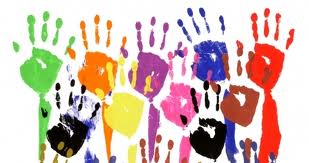#BlogExodus: Learning and Teaching
How did I never make the connection before? We make such a fuss about the Passover Seder being an important, entertaining, but most of all educational event for the children...why? Because we want to transmit the essence and implications of its story to the next generation? Sure, that, too.
But as I reflect on the relationship between teaching and learning, on the hackneyed but inescapable truth that we teach in order to learn, that our students are our best teachers, well, really, why this hullaballoo over the Passover Seder?
Why else? It's because this is the lesson we adults most need to learn, ourselves. Think about it: what could be harder than transforming an experience of slavery into a source of strength and integrity and compassion; of internalizing qualities like humility, gratitude, and hope; of freeing ourselves and one another from the shackles that limit and distort us; of bearing up under the responsibilities of freedom? There's work enough for a lifetime-and-a-half.
I've been teaching two different Introduction to Judaism classes this year, nearly simultaneously: one at a synagogue, another at a liberal arts college. You know, the kind of course where each session's topic could become a year-long course. Thanks to my students and their need for a nodding acquaintance with some three-to-five thousand years of Jewish history (depending on where you start counting), I can now reel off a lot more dates in connection with specific historical events than I could have a month ago. I also have a much better idea of how I might teach all of Jewish history in an hour, next time.
It's funny. Teaching can simultaneously humble us, highlighting all the things we don't know (or have forgotten); and build our confidence, reminding us of how much more we do know than when we first began learning.
This week, in a session on Israel and Zionism, one of my students asked, "What is the definition of Zionism?" My first thought was, "OMG! What is the definition of Zionism?" followed immediately by, "Duh! How could I have not looked that up before tonight's class?" But once I was through with my ritual moment of panic and self-flagellation, I realized that I actually had an answer, and that while it might not match the dictionary definition (though it came fairly close!), it was a legitimate and more nuanced definition than Merriam-Webster could offer (though perhaps not quite as nuanced as this definition). Oh, right. I'm a rabbi. I do know something about this stuff.
My older daughter, all of five years and eight months, has recently taken, from time to time, to shouting at her younger sister (almost four years old), "YOU DON'T KNOW ANYTHING ABOUT LIFE!" My husband told me last night that he's decided to have a talk with our older girl exploring what exactly she knows about life and whether she know what's most important in life (like, say, kindness to her sister). Which led to a rousing, if brief (due to practical considerations, not for lack of material), conversation about what we think is most important in life. When we teach, we are required to both review and push the boundaries of what we know.
Thank God, truly, for our students, our children. Think of all the information and insights we'd never gain without them, the blind spots we'd never even know we have, the convictions we might never discover in our own hearts. The Passover Seders we might not fuss over, were it not for them.
This post is part of a Passover project, #BlogExodus, the brainchild of ImaBima.
This post is part of a Passover project, #BlogExodus, the brainchild of ImaBima.

Yasher Koach, and right on the spot. Delightful to read, too.
ReplyDeleteI taught that liberal arts college Intro Judaism course for 4 years -- at a liberal Catholic college, in fact -- and learned more about Judaism and the teaching thereof than I would have imagined. Now granted, I pilfered liberally from rabbinical school and undergraduate courses; one does have to learn in order to teach, not just each in order to learn (at least at the college level!). Funny thing, though: consistently, the students rated their required visit to a synagogue service as the highlight of the course. Back to the seder: At its best, experiential learning.
BTW a friend of mine always had her seders in the living room, with everyone lounging around on the comfy furniture. It takes a little planning to make sure everyone has somewhere to put down their glassware, but it brings "Kulanu m'subin" to life. We've done it for several years now. Oh, and she used to hang a "tent" from the central chandelier. We haven't quite gotten that experiential, but some year...
Thanks so much, Reb Deb. your kind words mean a lot. I have friends who similarly stage the seder as a re-enactment. Crossing of the sea and all. I love the tent idea!
Delete